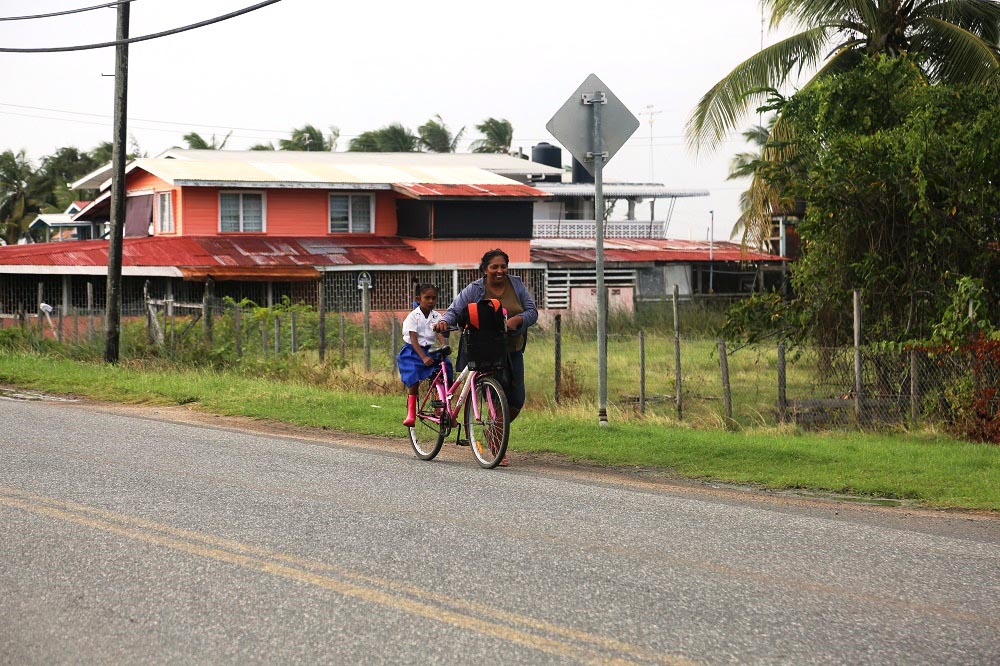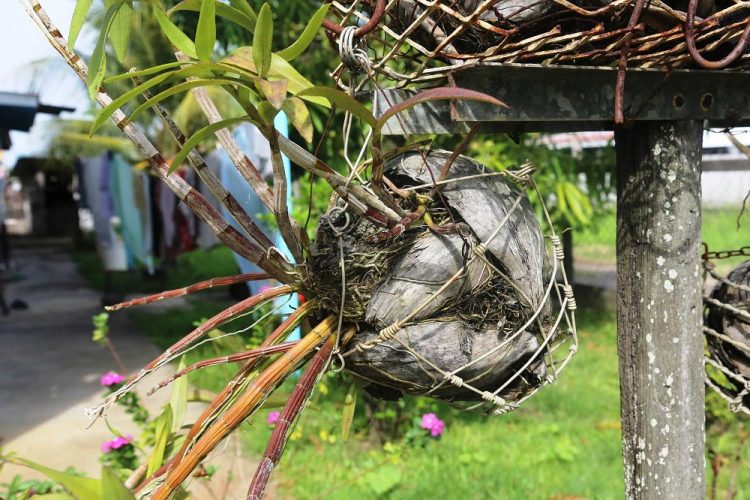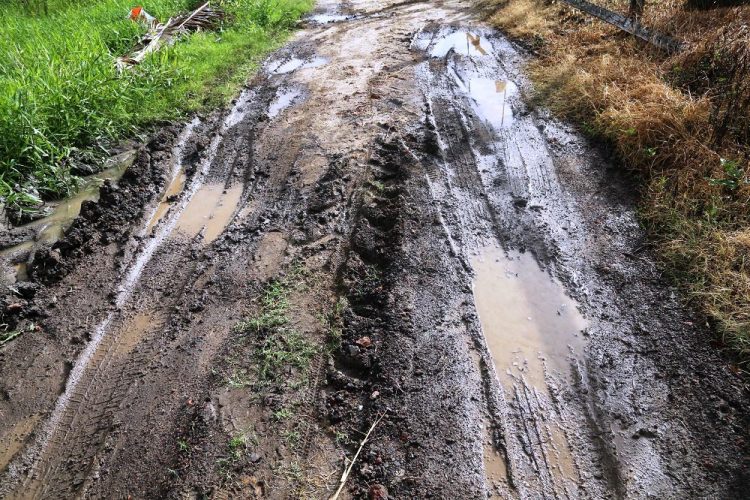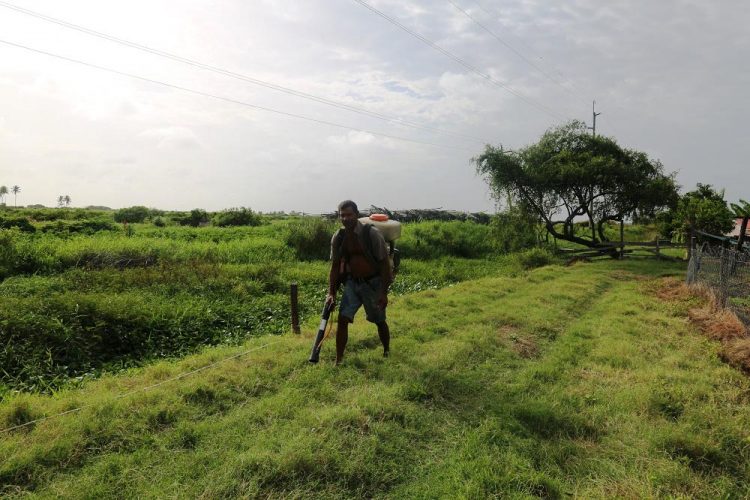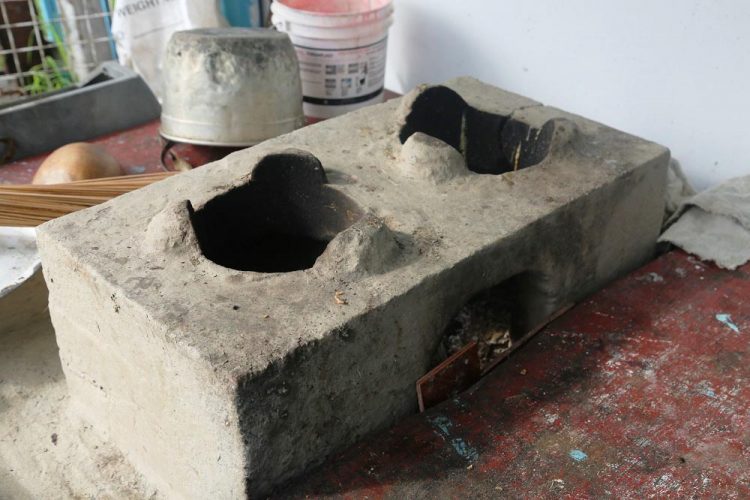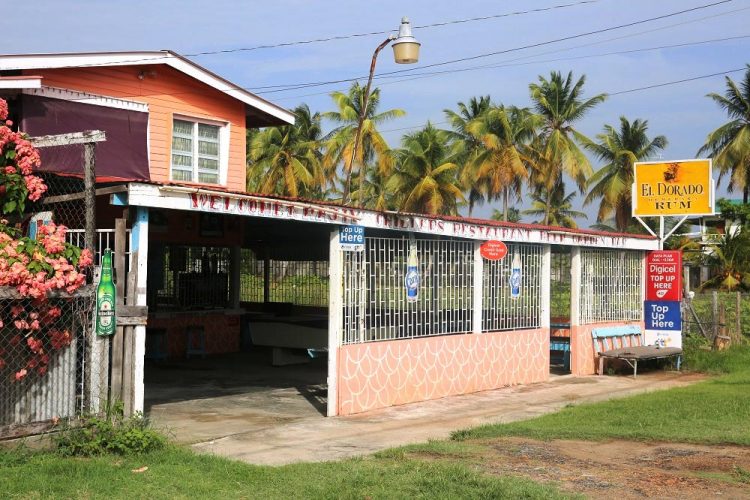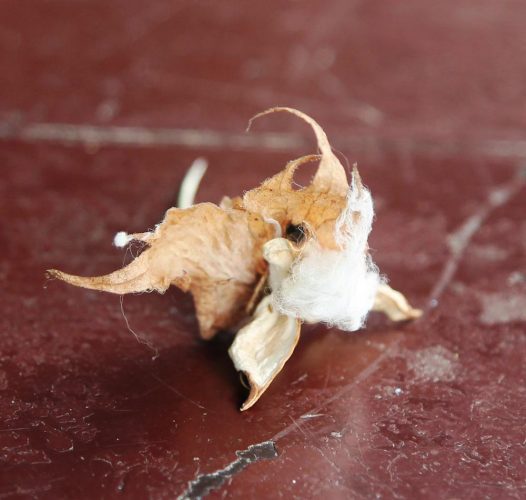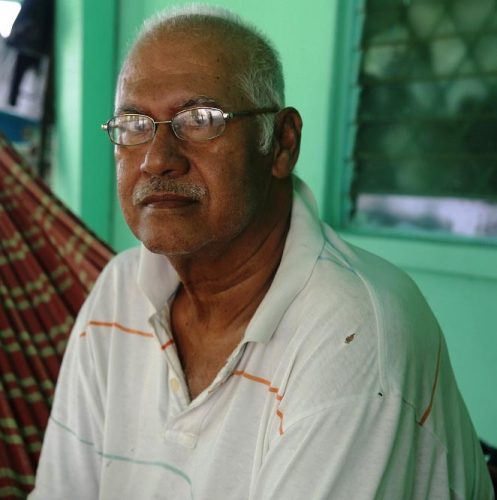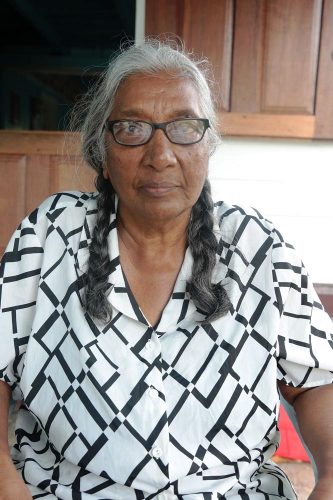Photos by Joanna Dhanraj
Approximately 48 kilometres from Georgetown and bordered by Fairfield and Carlton Hall with its expanse stretching to the Atlantic on one side and the rice fields on the other is the community of Broomhall. Its small population of 40 or so is made up of East Indians.
Broomhall is situated six miles from Mahaica and another six from Mahaicony, according to one of the residents there. Though no one is certain how long the village has been in existence they do say that the village was once a cotton plantation and cotton trees have always been popping up here and there.
With a name like Broomhall, one would wonder that with its numerous coconut trees, there probably are people who make and sell brooms, but that is not the case, although they do make for themselves. The main economic activities have always been rice and cattle farming. There are coconut walks as well that add to their income.
One of the very first families to settle at Broomhall is said to be the Subedars who reportedly bought half of the Broomhall plantation. It is not certain who owned the other half. However, over time, the Subedars sold plots of land.
It is the rainy season and Broomhall was soggy in places.
One of the first houses along the road has a sign with the name Subedar and the words ‘Attorney-of-Law’; the gate was padlocked.
Nearby, at the only grocery shop in the village, its owner lay in a hammock enjoying the cool breeze. Wazir Parjohn migrated to Broomhall in 1977 from Little Biaboo, Mahaica, with his parents and five other siblings. Parjohn was 17 years old then and considered Broomhall boring. He was accustomed to the brighter Little Biaboo as well as being familiar with its people; according to the man he wanted to move back there.
“It had about five or six houses when I come here to live. At that time GRB [Guyana Rice Board] had rice mills set up all over the place; my father was supervisor for the one at Belmont,” he said. Parjohn took up work when he was in his early twenties.
Once a mechanic working with the government, he has since stopped working after becoming ill.
Although when Parjohn had just arrived he dreaded the thought of living in Broomhall, he has come to love this village and some of the reasons for this is how breezy it can get, the peaceful atmosphere and most of all, friendly neighbours. The people, he said, are what make Broomhall special, adding that they are always there to support and comfort each other, particularly during times of grief.
His grocery shop though little serves to provide for Broomhall when a neighbour runs out of food supplies; even the villagers at the farthest end are considered neighbours or like Parjohn says, “we’re like family.”
One thing that has been bothering him is the frequent blackouts they get. Just last Saturday at 5 pm the village was hit with a blackout, which did not end until the following day at 10 am. This happens often, he said, and because he has a shop he has a larger quantity of goods that can spoil. The generator in Fairfield next door supplies Broomhall and Parjohn is beseeching them to do something urgently about this.
In addition, he would like to see streetlights for his community and a proper fix for the deplorable roads in the area.
Seventy-four-year-old Ismay Hughes sat on a chair under her house looking out chatting with her 78-year-old husband Jonathan who was resting in the hammock nearby; they are the oldest couple in the village.
She and her husband and two children at the time settled in Broomhall in 1968. Life was not much different for her as she had lived in the nearby Fairfield prior to moving. What was differed though was that Broomhall was a less populated area.
“Some of the first families to live here were the Subedars, the Ramdannys and the Coopsammys,” she said.
“I like the quietness. Everybody live nice; we live neighbourly. I don’t do farming but some of the neighbours do… They would come at the fence and hand me bora or squash or pumpkin.” This holiday is sure to spice things up with the sharing of black cake, she noted.
Noticing her fireside in a corner I asked whether she still uses it. Hughes said she does but only on holidays as there is more cooking then.
Harking back to her girlhood days, Hughes said she attended Stanleyville Methodist School two villages away in Harmony Hall also called High Dam. At that time the Carlton Hall Primary School, which has a nursery department attached to it, did not exist.
When it comes to getting groceries the elderly woman says, the mobile van provides these. She gets her cooking gas from Parjohn’s shop, while her son who lives with her travels to the Mahaica Market for fruits. It is this son who takes care of the cows, sheep and other poultry animals. Her other children live in Canada; she spends six months with them and the other half of the year in Broomhall. The poultry animals, she said, provide meat and eggs while her cows provide milk; the tame ones kept at Fairfield that is. Whatever cattle she keeps at Broomhall, are all wild and are usually sold for their meat. Her son explained that in order to catch them he rides a horse and uses a lasso. But even though they are wild, persons have managed to steal her cows a few times.
Apart from persons working as rice/cattle farmers, some are also employed at John Fernandes Rice Mill or Chicken Farm, which supplies Bounty Supermarket.
Hughes, pointing to the cotton tree growing in her yard, said that people usually stop by for its leaves which they use as a remedy for colds.
Hughes is a member of the St Matthew Lutheran Church situated in the village.
When asked what sort of development she would like to see for her community, Hughes said she would like to see better roads and streetlights adding that cables have been put underground since the previous administration was in power, but they are still awaiting the installing of the lights.
Through one of the badly deteriorated streets where a cat stood crying, lives Indrowtie Ramsook. Though she moved from Carlton Hall to Broomhall when she was six, it seems to her like she has always been a native having played with friends through the streets and walked to school with siblings. Although Ramsook said not much has changed in Broomhall, she was more attached to those who lived there and grew up with her. She still keeps in touch with them on Facebook; she has visited some of them as well while on a New York trip.
She did have a few complaints as well beginning with the weed-filled canal that she said is the same canal that runs on the Railway Embankment from Georgetown. It has been more than a year since it was last cleaned. Another issue is the street through which she lives. It floods at times when it rains and to such an extent that her nephew is forced to put plastic bags on his feet to get out of the street before he can put his boots on and continue on to school. She pleads that immediate action be taken to fix the street.
